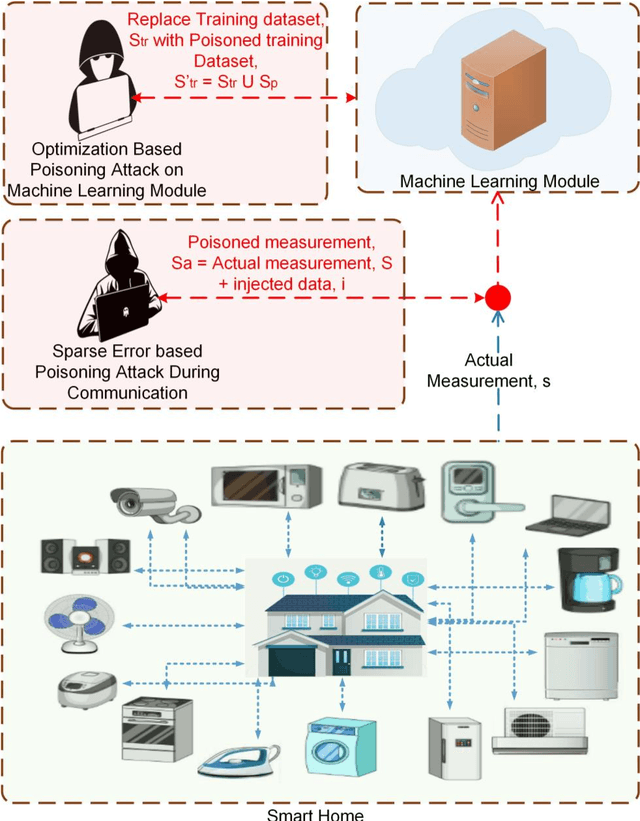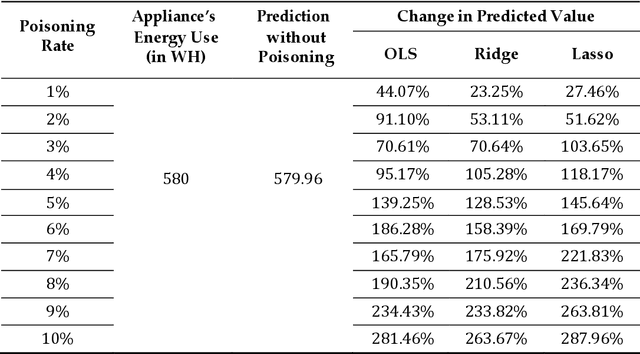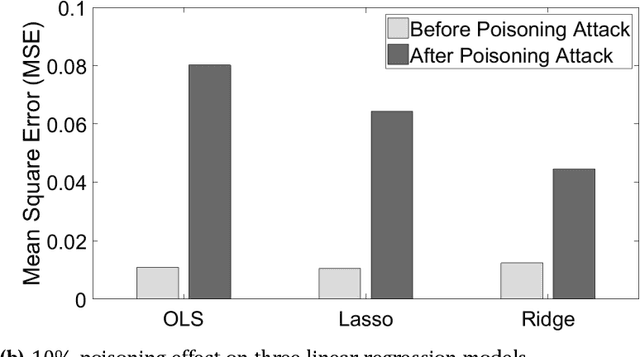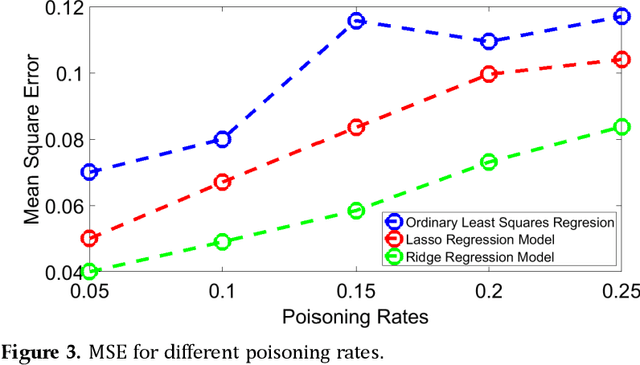Bi-Level Poisoning Attack Model and Countermeasure for Appliance Consumption Data of Smart Homes
Paper and Code
Jul 01, 2021



Accurate building energy prediction is useful in various applications starting from building energy automation and management to optimal storage control. However, vulnerabilities should be considered when designing building energy prediction models, as intelligent attackers can deliberately influence the model performance using sophisticated attack models. These may consequently degrade the prediction accuracy, which may affect the efficiency and performance of the building energy management systems. In this paper, we investigate the impact of bi-level poisoning attacks on regression models of energy usage obtained from household appliances. Furthermore, an effective countermeasure against the poisoning attacks on the prediction model is proposed in this paper. Attacks and defenses are evaluated on a benchmark dataset. Experimental results show that an intelligent cyber-attacker can poison the prediction model to manipulate the decision. However, our proposed solution successfully ensures defense against such poisoning attacks effectively compared to other benchmark techniques.
 Add to Chrome
Add to Chrome Add to Firefox
Add to Firefox Add to Edge
Add to Edge